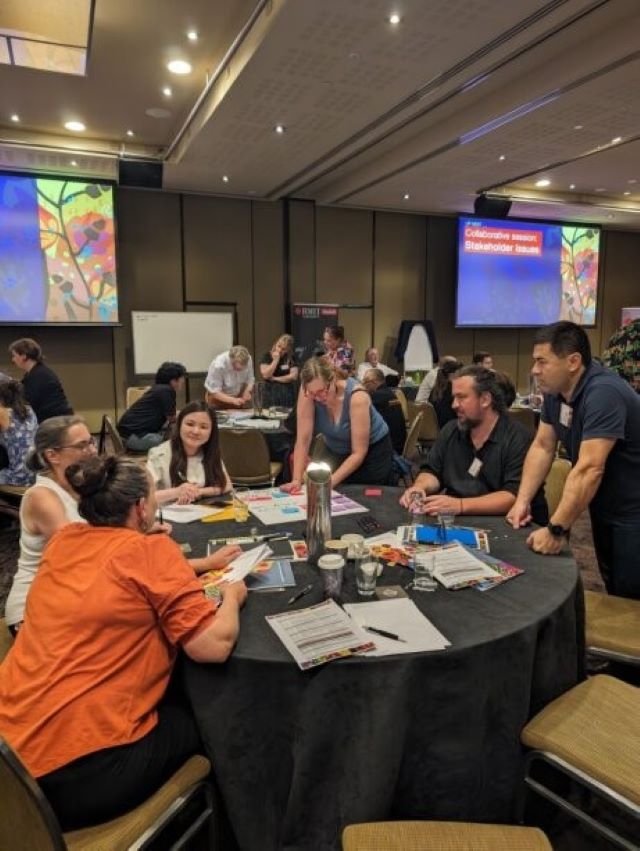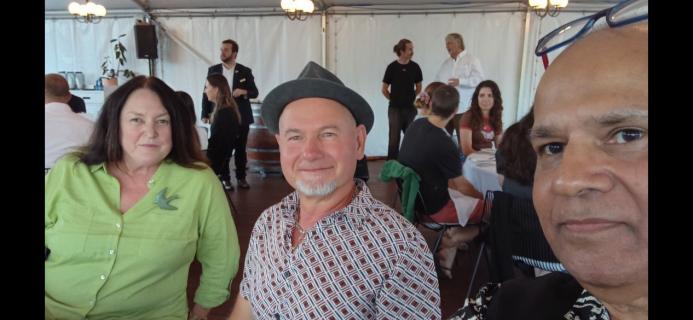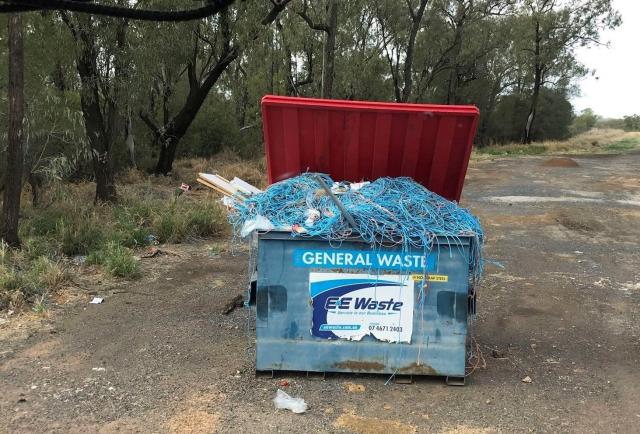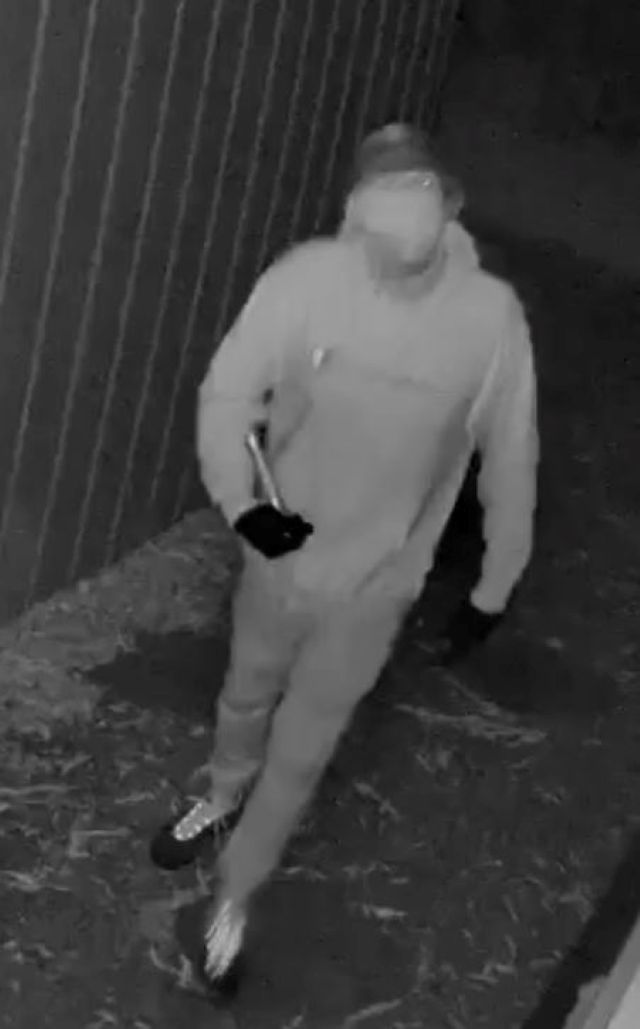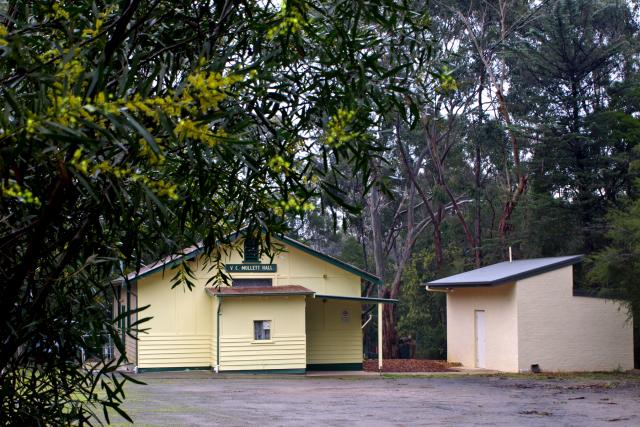Around 70 native foods business practitioners attended the inaugural First Nations Native Food Blockchain Workshop in Healesville to learn about new options to track and sell native foods through blockchain.
The workshop was delivered by the RMIT Blockchain Innovation Hub and Digital3 Group in partnership with Agriculture Victoria and the Federation of Victorian Traditional Owners Corporation (FVTOC) on 21 and 22 February.
Agriculture Vitoria senior project officer Samuel Nolan said Djakitjuk Djanga Community of Practice wanted to explore the potential use for blockchain technology to support outcomes through Victorian Traditional Owners and Aboriginal businesses in the industry.
“Ultimately, Agriculture Victoria wants the Victorian Aboriginal community to think about the possibilities for blockchain technology and how that can support them in the native food industry,” he said.
“The workshop was held at the RACV Healesville Country Club and Resort because Healesville is central for everyone across the State because the attendees were based from all around Victoria.”
RMIT Blockchain Innovation Hub learning director and associate professor Stuart Thomas said the idea of the workshop was to convey some of the RMIT’s ideas and perspectives about blockchain, particularly as an emerging form of useful economic and technical infrastructure.
“The blockchain allows emerging businesses to think about new and culturally appropriate ways of doing the things that they need to do in development,” he said.
“Also, our point of view from RMIT is to get together with those people who are leaders in the community and also leaders in the native foods and botanical business to inform what their concerns are, what their operating conditions are and where they’d like to see native foods businesses go for the broader economic, self-determination of the Aboriginal community.”
Over the two days, the workshop explored the potential for blockchain technology to support positive outcomes for Victorian Aboriginal native food businesses.
The workshop also focused on ways in which blockchain can support and uphold Indigenous Cultural Intellectual Property rights for Victorian Traditional Owners.
Assoc Prof Thomas said blockchain technology could achieve two important things in terms of managing information.
“Blockchain is a new way of managing information that is capable of operating in a much more decentralised framework which gives all people engaging with it, but a lot more agency and control over the information that they hold.
“The other thing that is very important for the native food industry is for assurance of quality information about provenance and origin information about the product to ensure the integrity of the supply chain and the validity of the producers as they bring products to market so it can provide tractable and traceable information about the product for consumers.
“Consumers can see all the processing, packaging and other supply chain elements.”
Gunaikurnai Land And Waters Aboriginal Corporation (GLAWAC) economic development manager Rodney Short attended the workshop with Kevin Murray who is a head chef of a bushfoods cafe at Kalimna and Sam Monks who is a bushfoods project officer at Wulgunda Narloo Learning Place.
All three of them work for GLAWAC.
GLAWAC is the prescribed body corporate for the Gunaikurnai people and claim area providing joint management of 14 parks and reserves within Victoria.
It has a membership of more than 600 Traditional Owners, all of whom have proven their ancestral links to one of 25 apical ancestors registered in the Native Title Consent Determination.
Mr Short said he hadn’t known what the blockchain was before he attended the workshop.
“I certainly have a better understanding now of what the blockchain is through the workshop,” he said.
“In the past, there were some situations where the organisation that was promoting the products in a cultural way with cultural names and places was not actually an Aboriginal organisation.
“It [the workshop] was really about bringing the Aboriginal communities together in Victoria and looking at a way of using blockchains as a way that we can protect the cultural properties of bushfoods in the future.”
Mr Short said the workshop was a great opportunity for Traditional Owner groups to network with one another.
“What we are interested in doing is continuing to work with Ag Vic and with the federation to look at the potential of us developing our own blockchain as a Traditional Owner group of Victoria in the future,” he said.
“Personally, I feel like there’ll be more discussions around it over the next 12 months.
“Past that time, we might look at starting a blockchain for Traditional Owners to safeguard the intellectual property of bushfoods.”
Mr Nolan said Agriculture Victoria would keep supporting the native food industry.
“We have a number of initiatives that have been developed in partnership with Victorian Traditional Owners,” he said.
“We have provided funding and support for the implementation of the Native Food and Botanicals Strategy.
“We also have Aboriginal Landholder Information Service program and we are looking at more opportunities.”

